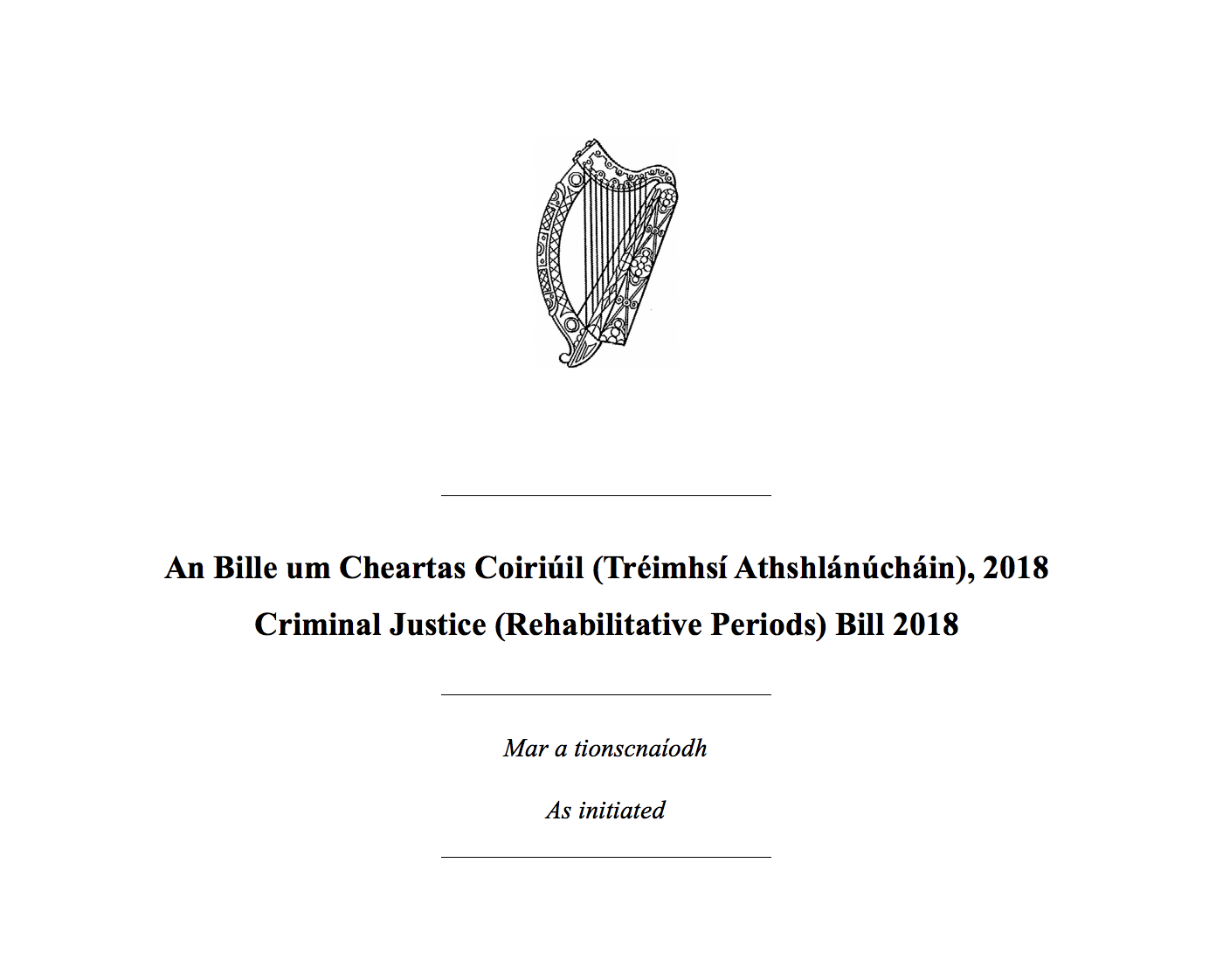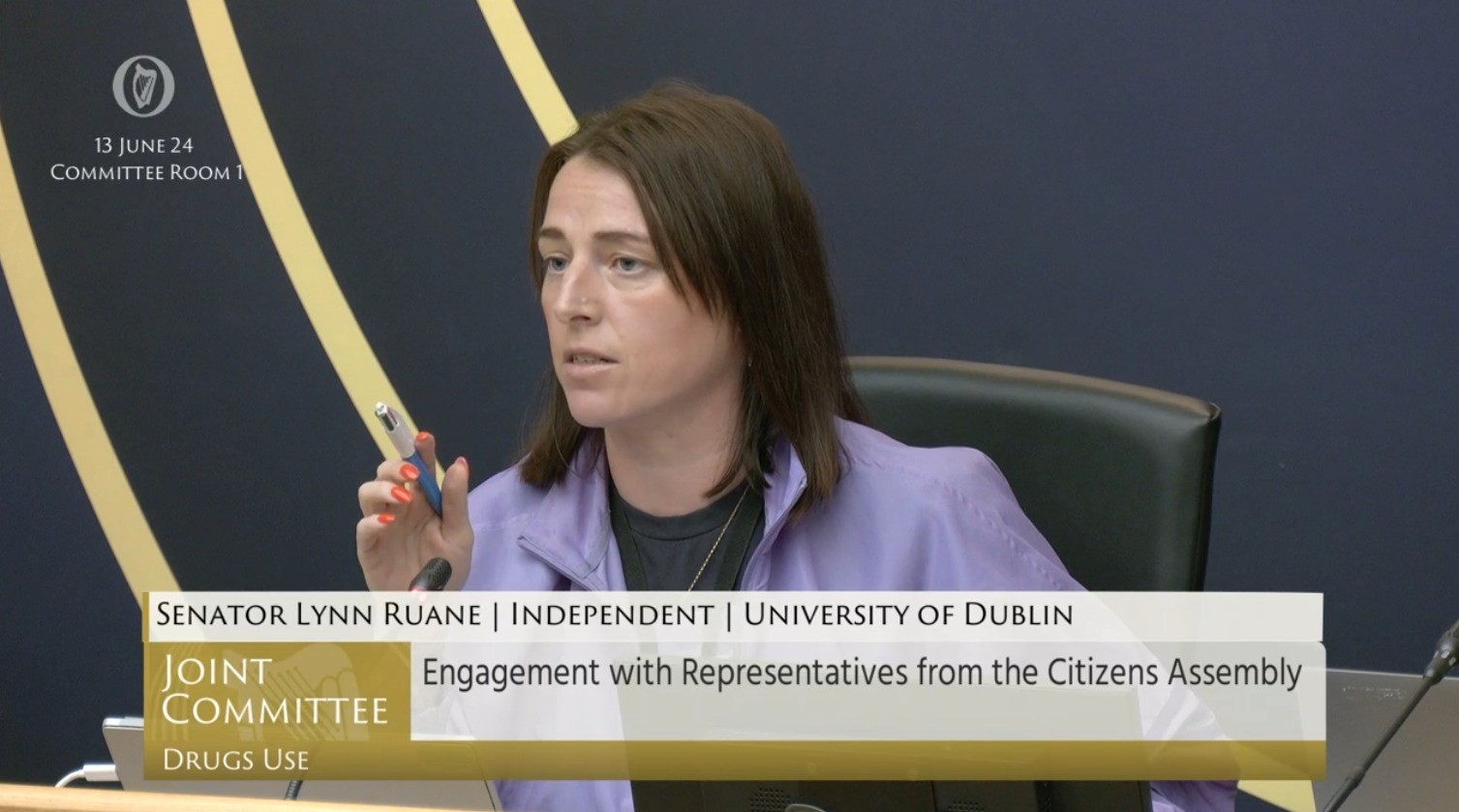 Feb
05
2019
Feb
05
2019
Senator Lynn Ruane Launches Spent Convictions Reform
February 5th 2019
Independent Senator Lynn Ruane has today launched the Criminal Justice (Rehabilitative Periods) Bill.
The bill would expand fairer access to spent convictions; minor convictions that don’t have to be disclosed after set periods of time when returning to education, applying for a job or being Garda vetted.
The bill would expand the very limited Irish spent convictions regime introduced in 2016 which has faced criticism for not meeting its rehabilitative aims.
The bill will be debated in Seanad Éireann on February 13th 2019 (next Wednesday) where Senator Ruane is seeking cross-party support for its proposed reforms.
You can read the bill here and a copy of its explanatory memorandum here.
Senator Ruane said:
“As a community worker, I saw first-hand people being turned away from professions such as social work due to old, minor convictions to which they could have brought a wealth of personal and lived experience.”
“We need to get the balance right between protecting the public interest and affording the individual a real second chance. Our current law does not get this balance right – it’s not fair, it’s not proportionate and it’s not working.”
“We need a spent conviction regime that allows people to demonstrate their capacity to change their behaviour, engage in major personal rehabilitation and leave minor criminal records in the past. That’s why I’m bringing this legislation forward.”
“We all benefit socially and economically from people with former convictions being able to reintegrate into society. The international evidence shows that a fair spent convictions regime is one of the best ways to reduce re-offending, break the cycle of criminality and give people hope at a dark time in their lives by giving them a chance to redeem themselves.”
“I’m bringing this bill forward in the Seanad next week where I hope senators will give it their full support. I’d like to thank the Irish Penal Reform Trust for their assistance in drafting this vital law and my colleagues in the Seanad Civil Engagement Group for facilitating this debate.”
Proposed Reforms
The bill makes four major changes to the Criminal Justice (Spent Convictions and Certain Disclosures) Act of 2016.
- If you are in prison for 12 months or less, your conviction can become spent under the current rules. It’s proposed to extend this to a prison sentence (custodial sentence) of 24 months or less and sentences without prison time (non-custodial sentences) to 48 months or less. This would move the Irish regime closer to the European norm and to the UK where the custodial sentence limit is 30 months in Northern Ireland and 48 months in England and Wales.
- There is currently a single conviction limit and if you have two convictions, neither can become spent. It’s proposed to remove the single convictions limit so two convictions are eligible to be spent.
- The set time period before a conviction can become spent is currently a blanket 7 years, no matter your circumstances or the length of your sentence. It’s proposed to make the set time period, or the rehabilitative period, proportional to the length of your sentence.
- There is currently no recognition of the additional rehabilitative needs of young adults. It’s proposed to give adults between the ages of 18-24 an extra opportunity for a spent conviction and proportionally shorter rehabilitative periods, in recognition of the disproportionate impact of a conviction received at a young age on lifelong prospects.
Why Now?
- It’s been almost exactly three years since the passage of the Criminal Justice (Spent Convictions and Certain Disclosures) Act of 2016 through the Oireachtas. TDs and senators criticised it at the time for being too restrictive but were told that we needed to see how a limited regime would work in practice before expanding it. It’s now time to assess whether the Act is achieving its ostensible rehabilitative aims.
- There has been significant developments in European data protection law in the interim period, in particular the introduction of the General Data Protection Regulation (GDPR) and the Data Protection Act 2018 which places certain limits on the ability of the State to retain data on its citizens, including criminal records. This could have implications for our spent conviction regime – as explored in this 2017 article, “Criminals, Data Protection and the Right to a Second Chance.”
- New cases have been taken under Article 9 of the European Convention on Human Rights in this area, such as the decision by the UK Supreme Court last week to rule the ‘single conviction rule’ (only allowing one conviction to be spent) in the UK police background check system as an infringement of the right to privacy. Ireland’s scheme currently has the same rule.
- The Joint Oireachtas Justice and Equality Committee released a 2017 entitled ‘Penal Reform and Sentencing’ which heavily criticised the Irish spent convictions regime and called for reforms along the lines proposed in this bill.
“In light of these changes, we feel it’s time to consider spent convictions reform,” concluded Senator Ruane.
If you have any questions or queries, you can contact me here.
You would like to lobby in support of the bill, you can do so here.






